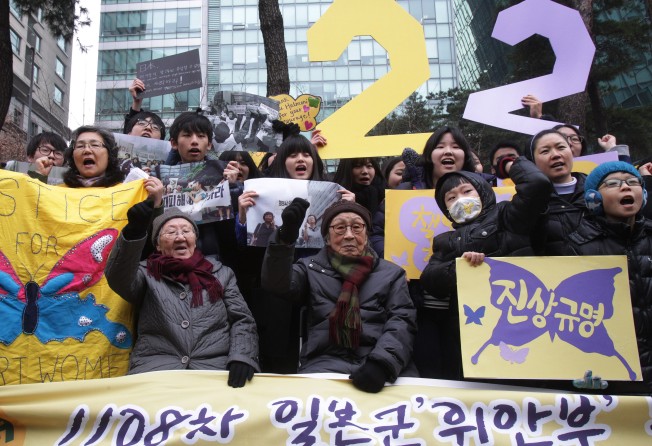Seoul wants Unesco to register records on Japan's wartime sex slaves
South Korea wants to preserve documentary evidence of 200,000 sex slaves during second world war, while Tokyo denies "comfort women" were forced into slavery

South Korea plans to submit an application to register records on Japan’s use of wartime sex slaves at Unesco Memory of the World, reported local media.
“We are examining and archiving relevant materials that are scattered across Korea, China, Japan and Southeast Asia,” explained the Ministry of Gender Equality and Family. “We will finish archiving by the end of this year and apply next year to be added to the register in 2017.”
South Korea’s gender equality ministry said it was considering cooperating with other countries and revelant charities to raise the chances of its archives being listed.
“This is a matter of understanding among nations, so it is more advantageous for us to submit an application together rather than Korea submitting an application on its own,” a ministry official told Yonhap News Agency.
Unesco launched the Memory of the World programme in 1992 to preserve the documentary heritage of various parts of the world. The committee meets every two years to decide which records will be added to the register.
During the second world war, an estimated 200,000 women from Asia, including China, Hong Kong, Korea, Indonesia, Myanmar, Thailand and the Philippines were forced to have sex in front-line brothels with Japanese soldiers, according to historians.
Nearly 70 years on, the issue of sex slaves remains divisive as Japanese politicians routinely deny that “comfort women” were forced into sexual slavery.
In 1993, Japan’s former Chief Cabinet Secretary Yohei Kono issued an apology and two years later then-Prime Minister Tomiichi Murayama also released a statement apologising for wartime agressions.
Activists and victims, however, have demanded a full apology issued by the Japanese parliament and official compensation from Tokyo.
On Tuesday, South Korean President Park Geun-hye urged Japanese leaders to honour the apologies issued by Kono and Murayama.